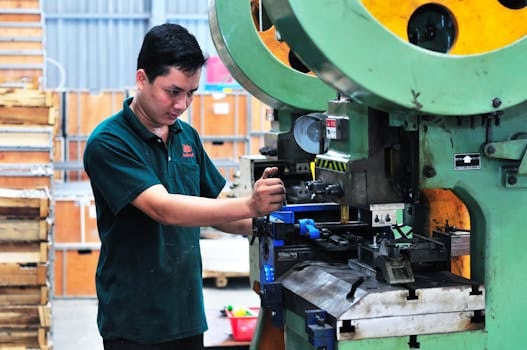Biometric Ethics Officers: Body Data Rights
In today’s digital age, the topic of data privacy and security has become more important than ever. With the rapid advancements in technology, our personal information is constantly being collected, stored, and used by various entities. This has raised concerns about the ethical implications of using biometric data, which is unique to each individual and can reveal sensitive information about our bodies. To address these concerns, many companies and organizations are now appointing Biometric Ethics Officers (BEOs) to oversee the handling of body data. In this article, we will explore the role of BEOs and discuss the importance of body data rights in the age of biometric technology.
The Rise of Biometric Technology
Biometric technology refers to the use of our unique physical or behavioral characteristics, such as fingerprints, facial recognition, or iris scans, to identify and authenticate individuals. This technology has rapidly gained popularity in various fields, including law enforcement, border control, and even smartphone security. It has also been integrated into everyday devices like laptops and fitness trackers, making our biometric data more accessible than ever before.
The Benefits of Biometric Technology
The use of biometric technology has many benefits, including increased security, convenience, and speed. For instance, biometric identification systems can help prevent identity theft and fraud, as biometric data is difficult to replicate. It also eliminates the need for passwords or PINs, which can be forgotten or stolen. This technology also provides a faster and more efficient way of identifying individuals, saving time and resources in various industries.
The Ethical Concerns
While the use of biometric technology has its advantages, it has also raised ethical concerns, particularly regarding the collection and use of biometric data. Biometric data is unique to each individual and can reveal sensitive information about our bodies, such as genetic predispositions or health conditions. This has led to concerns about potential discrimination and privacy violations.
The Role of Biometric Ethics Officers
To ensure the responsible and ethical use of biometric data, many companies and organizations have started appointing BEOs. These individuals are responsible for overseeing the collection, storage, and use of body data within their organization, and ensuring that it is done in a manner that is ethical and compliant with privacy laws.
Responsibilities of Biometric Ethics Officers
One of the primary responsibilities of BEOs is to develop policies and procedures for the handling of biometric data within their organization. This includes ensuring the data is collected and stored securely, and that it is only used for authorized purposes. BEOs also conduct audits, risk assessments, and employee training to ensure compliance with privacy laws and ethical standards.
The Importance of Body Data Rights
In the age of biometric technology, it is crucial to protect our body data rights. This includes the right to control how our biometric data is collected, stored, and used, as well as the right to be informed about the purpose of its use. BEOs play a vital role in upholding these rights and ensuring that our biometric data is used ethically and responsibly.
Conclusion
The use of biometric data has greatly improved security and convenience in many aspects of our lives. However, it has also raised ethical concerns and the need for protection of our body data rights. Biometric Ethics Officers serve as a crucial role in ensuring the responsible and ethical use of biometric data within organizations, protecting our privacy and upholding our rights. As technology continues to advance, it is essential to have individuals who are dedicated to upholding ethical standards and protecting our personal information in the digital age.










